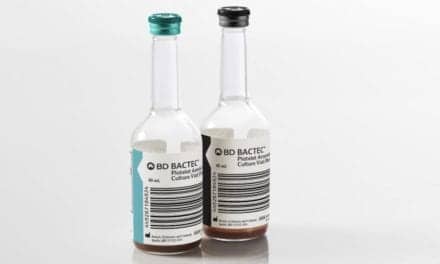Prenosis, an AI company enabling precision medicine in acute care, announced the U.S. Food and Drug Administration (FDA) granted marketing authorization for the Sepsis ImmunoScore using the De Novo pathway.
AI Software: Sepsis ImmunoScore
The Sepsis ImmunoScore is an artificial intelligence/machine learning software as a medical device (AI SaMD) to guide rapid diagnosis and prediction of sepsis.
Sepsis, which occurs when a person has an overactive response to an infection, costs the U.S. healthcare system billions of dollars and kills millions of people every year – more than all cancers combined.(1) Even if someone with sepsis survives an episode, the disease can have catastrophic and often permanent consequences on their quality of life after discharge.
Sepsis Risk Assessment
Leveraging a combination of biomarkers and clinical data through AI, the Sepsis ImmunoScore aids in the risk assessment for the presence of or progression to sepsis within 24 hours of patient assessment in the Emergency Department or hospital. By leveraging 22 diverse parameters, the Sepsis ImmunoScore holistically evaluates the patient’s biological status to output a risk score and four discrete risk categories; it is not an alert system. These risk categories correlate to a patient’s risk of deterioration, represented by length of stay in the hospital, in-hospital mortality, and escalation of care within 24 hours (ICU admission, mechanical ventilation placement, and/or vasopressor use).
“FDA authorization of a sepsis diagnostic tool with significant predictive power is a landmark event for people that could ever be at risk of sepsis at some point in their lives,” says Bobby Reddy, Jr, PhD, Prenosis co-founder and CEO. “Until now, there was no other FDA authorized AI diagnostic for sepsis, which is why the Sepsis ImmunoScore had to be granted marketing authorization through the De Novo pathway. FDA authorization offers yet another important piece of evidence of the potential of the Sepsis ImmunoScore to improve care.”
Integration with EMRs for Enhanced Clinical Accessibility
The Sepsis ImmunoScore’s software is integrated directly into hospital Electronic Medical Records (EMR), making it easily accessible to clinicians. An intuitive display reveals how each of the individual patient’s parameters was used to calculate their final sepsis score. This transparent look into the model is critical to build trust and intuition with clinicians and to enable a true clinician-AI partnership, which facilitates faster treatment decisions, improved outcomes, quality metrics, and better hospital financials, the company says.
Further reading: New Sepsis Test Provides Faster and Reliable Results
A solution such as the Sepsis ImmunoScore has the potential to save lives, reduce hospital length of stay, and improve compliance with payer protocols—such as the Center for Medicare and Medicaid Services’ SEP-1 bundle, the company says. The SEP-1 bundle is expected to have significant financial implications for hospitals across the United States by as early as 2026.
Empowering Precision Medicine in Acute Care with Immunix Platform
The Sepsis ImmunoScore was built using Prenosis’ Immunix precision medicine platform, a solution enabling precision medicine in acute care. Immunix simultaneously empowers the development and validation of new precision medicine tools and the real-time implementation of those tools to improve patient care and outcomes.
Through a decade of collaboration with ten partner hospitals across the United States, Prenosis used Immunix to build a proprietary biobank and dataset consisting of more than 100,000 blood samples from over 25,000 patients housed in Prenosis’ Biological Safety Level 2 lab in Chicago. Prenosis uses in-house assays in its wet lab to generate critical biological data from these blood samples and merges these data with extensive clinical data extracted from partner hospitals’ Electronic Medical Records.
This dual biological-clinical dataset, the largest in the world for acute care patients suspected of having serious infections, is used to develop AI algorithms to elucidate patterns in rapid immune response. The ultimate goal is to enable a deep understanding of each person’s individual biology, then use this understanding to recommend personalized therapeutics in real time in the acute care environment.
“The Sepsis ImmunoScore FDA authorization marks an important step in helping hospital systems provide better care,” says Reddy. “Similar to how sequencing technology enabled the precision medicine revolution in cancer, our powerful Immunix platform has the potential to unlock valuable insights to enable the creation of precision therapeutics guided by AI diagnostics. To date, this type of approach has been used predominantly in healthcare outside of emergency departments and hospitals. Prenosis seeks to change this by catalyzing a personalized medicine revolution in acute care.”
Featured image: The Sepsis ImmunoScore on an iPad. Photo: Prenosis
References:
- Rudd, K. E. et al. Global, regional, and national sepsis incidence and mortality, 1990–2017: analysis for the Global Burden of Disease Study. The Lancet 395, 200–211 (2020).




